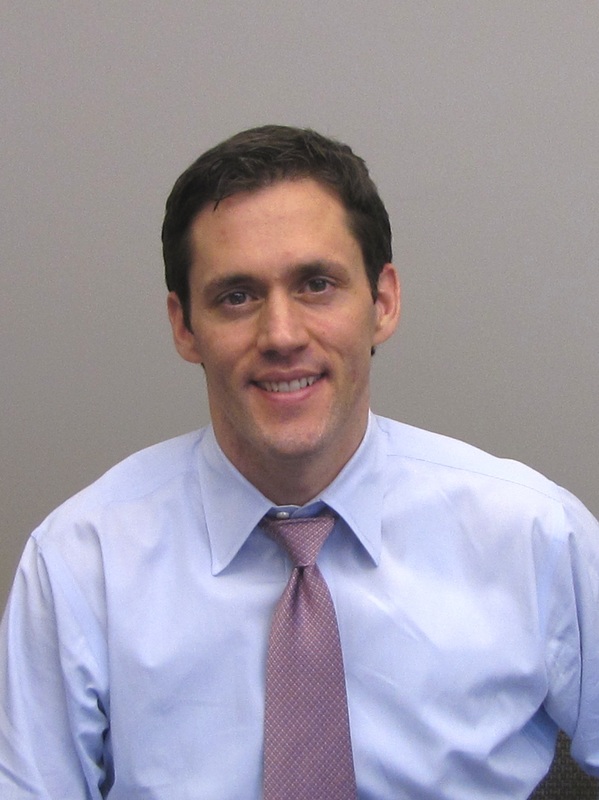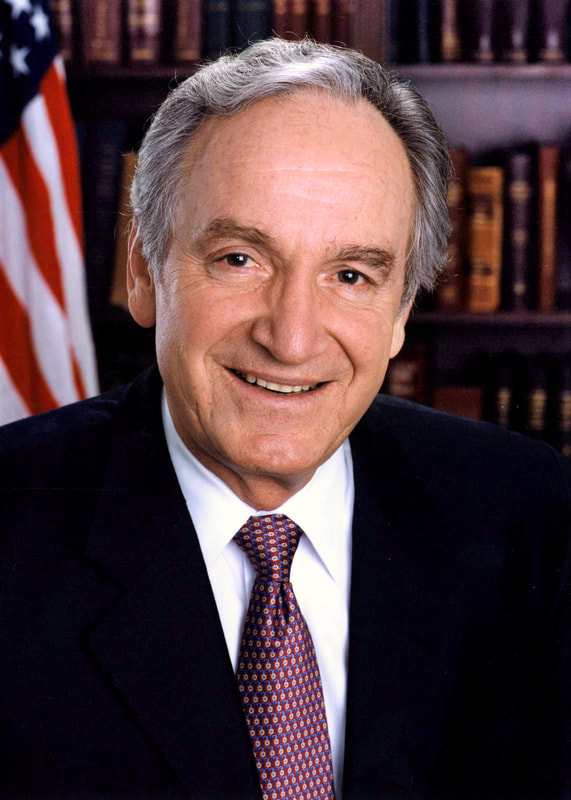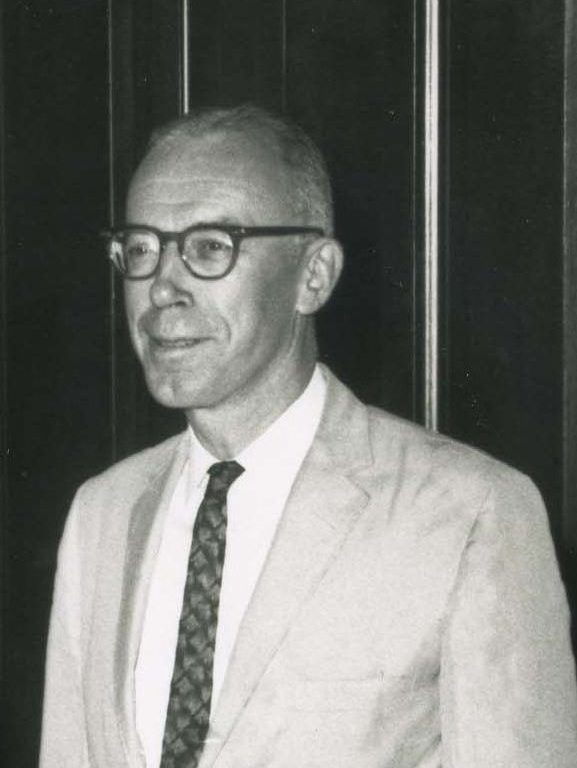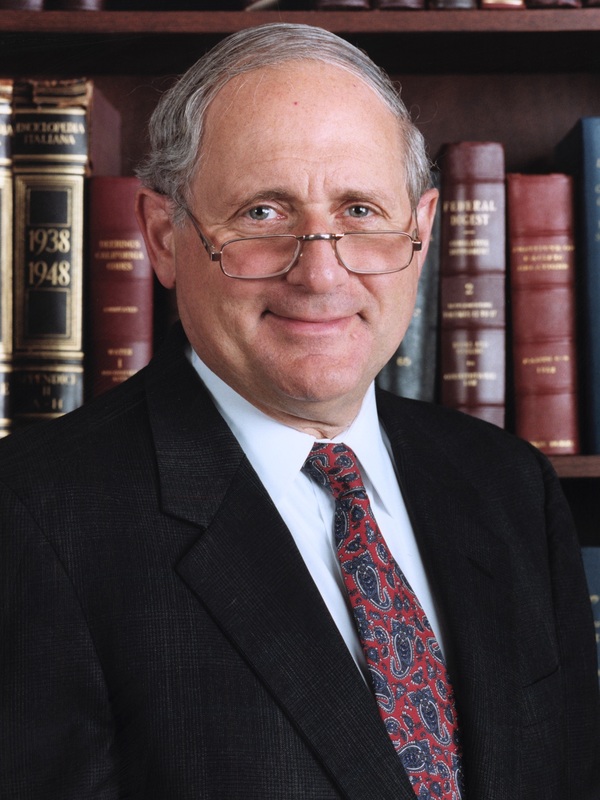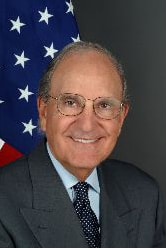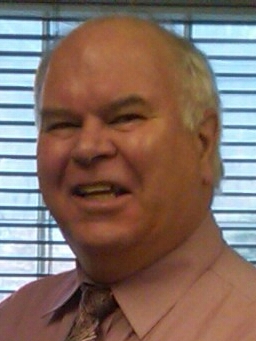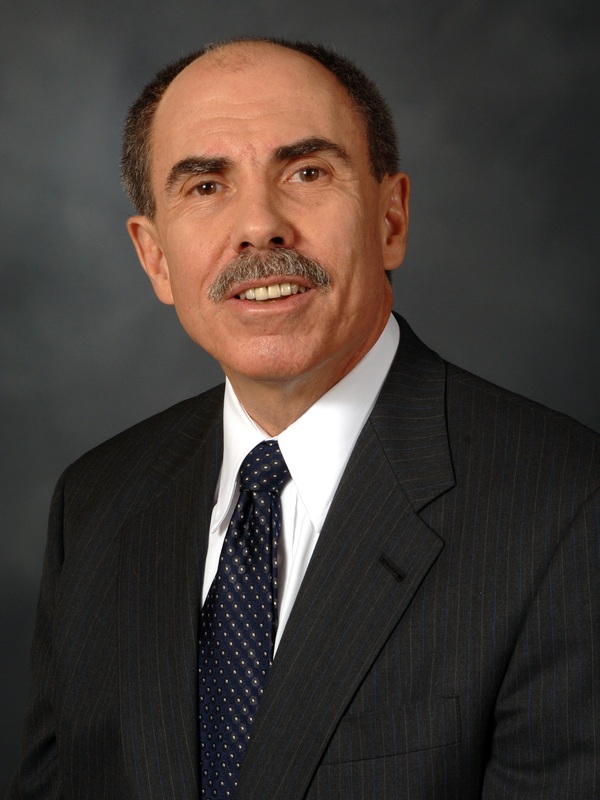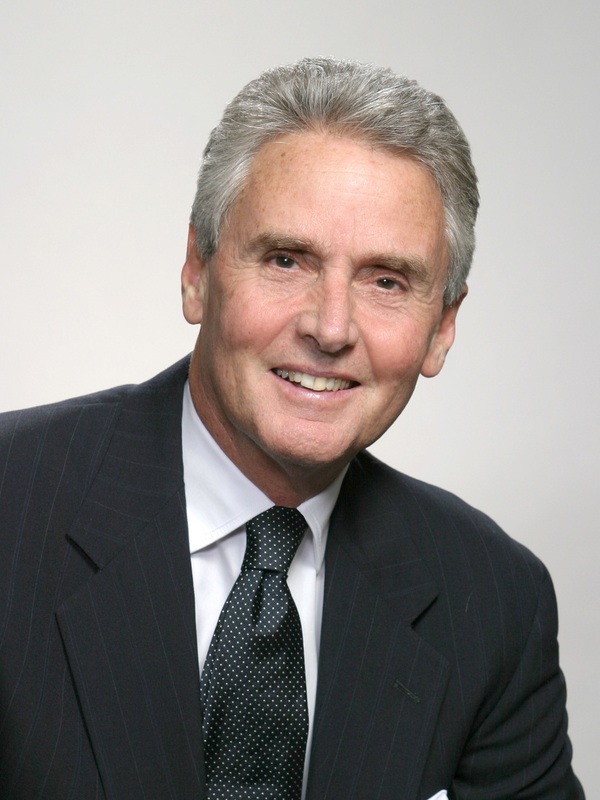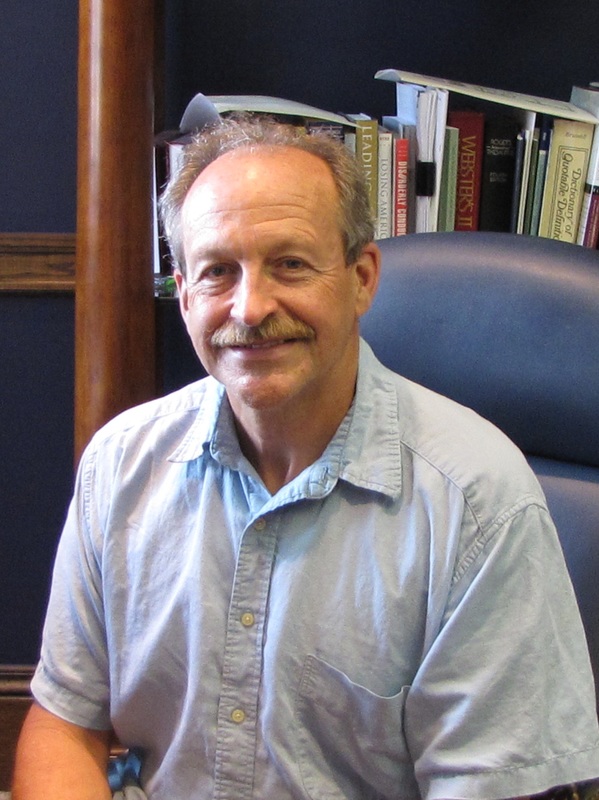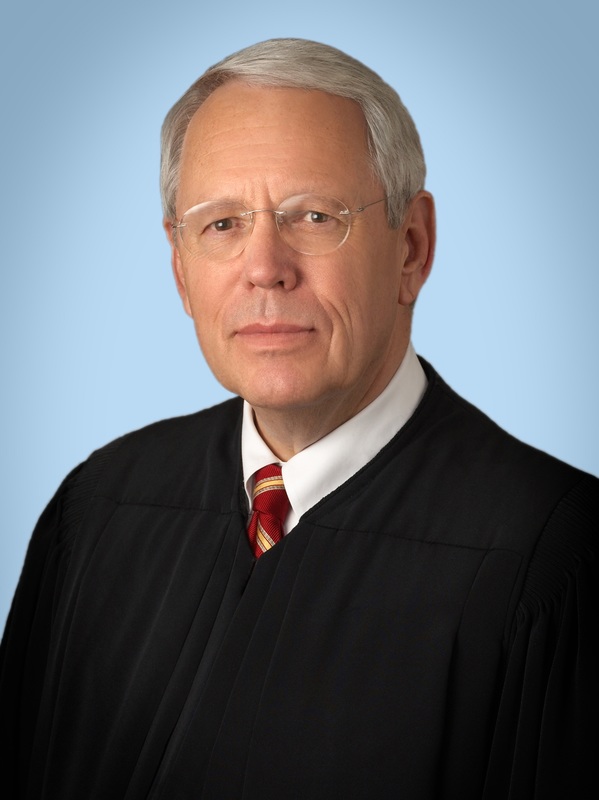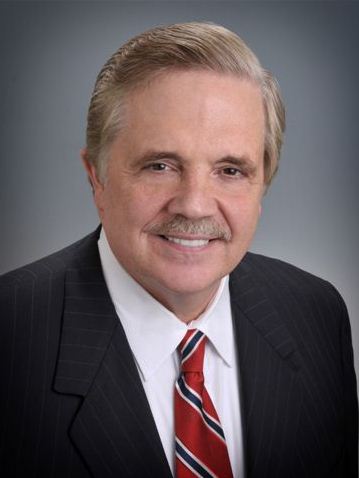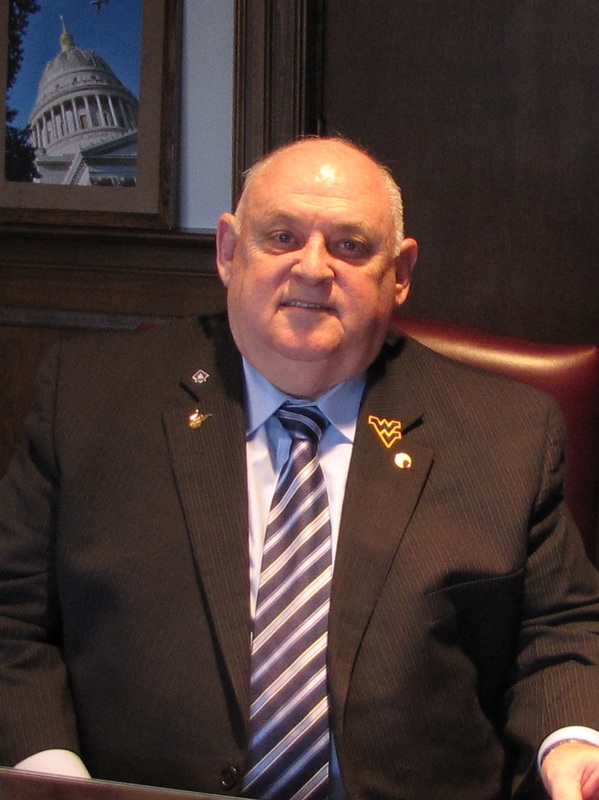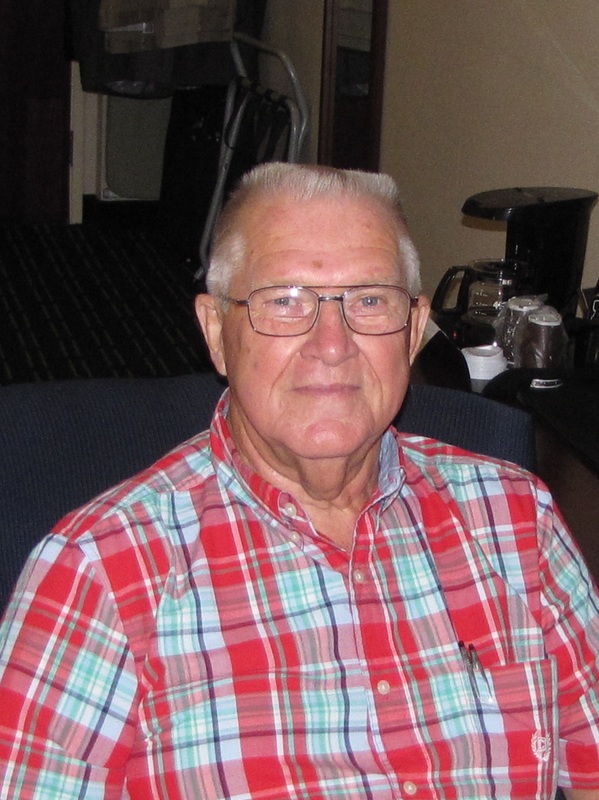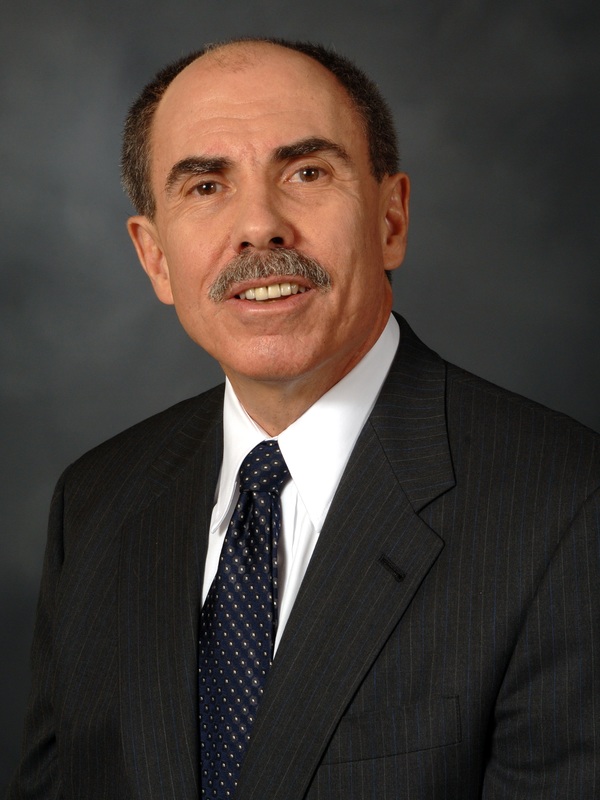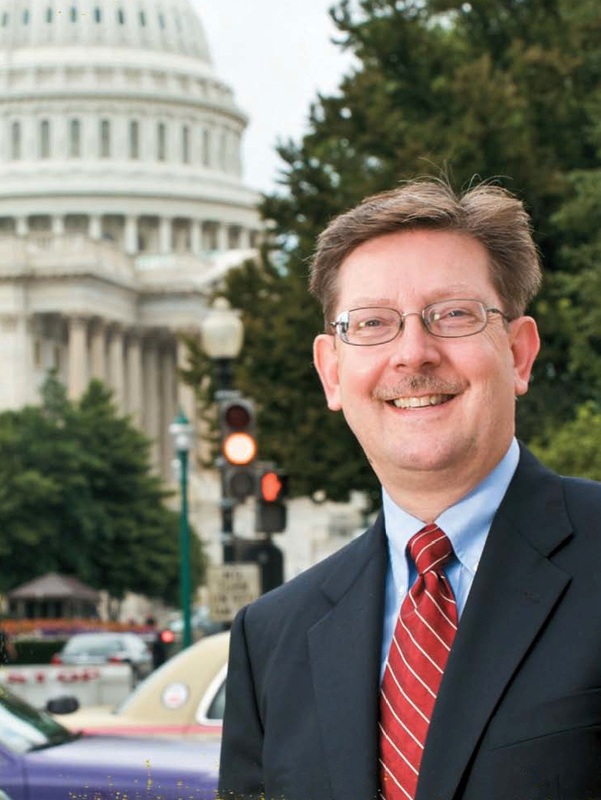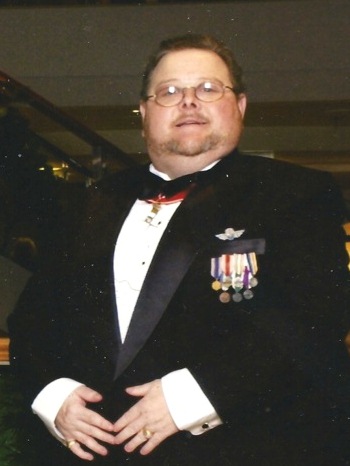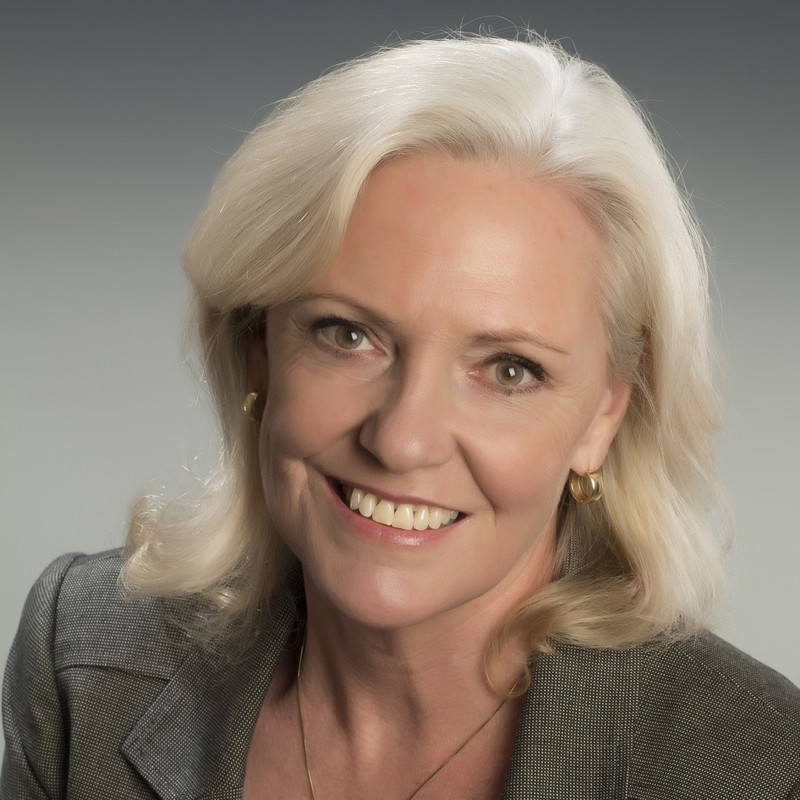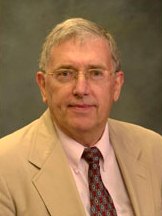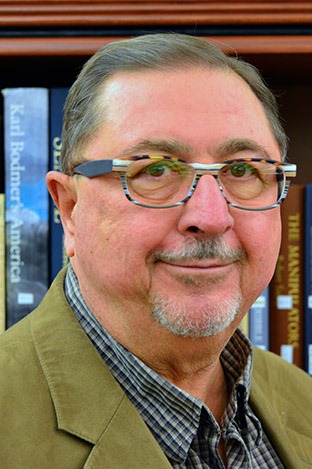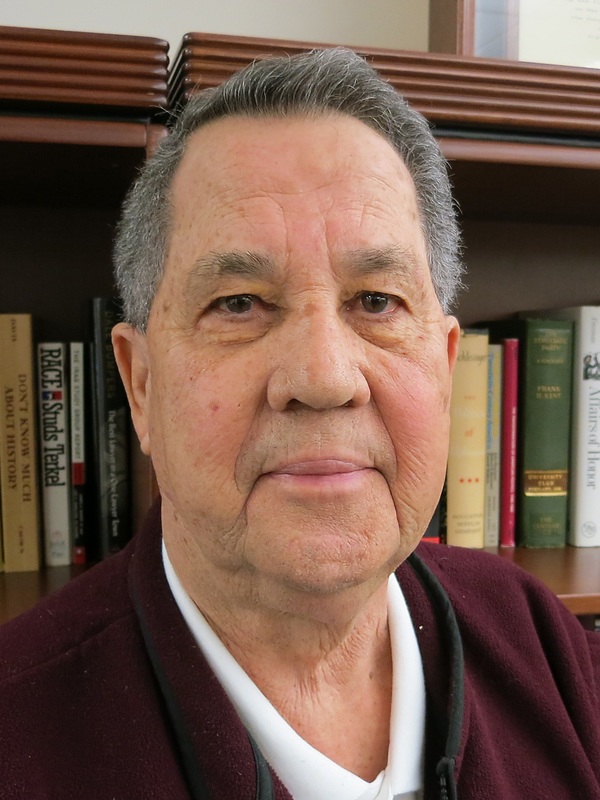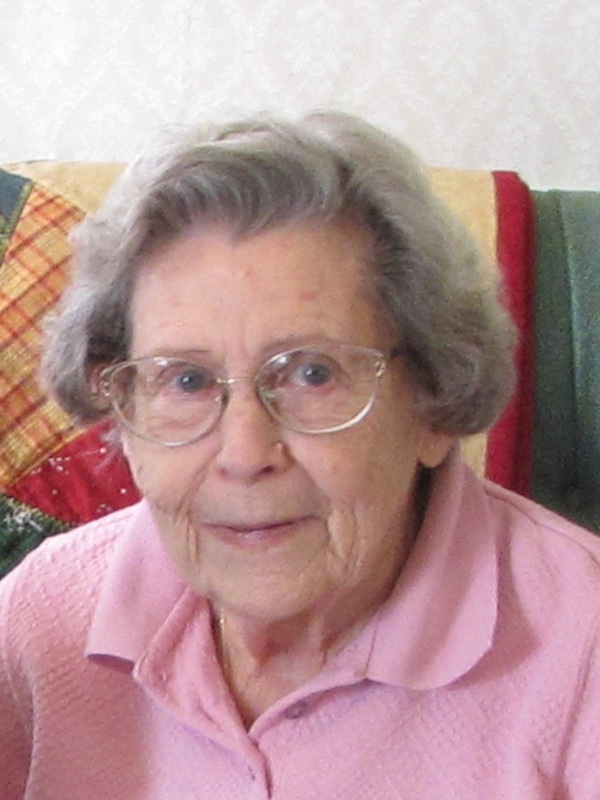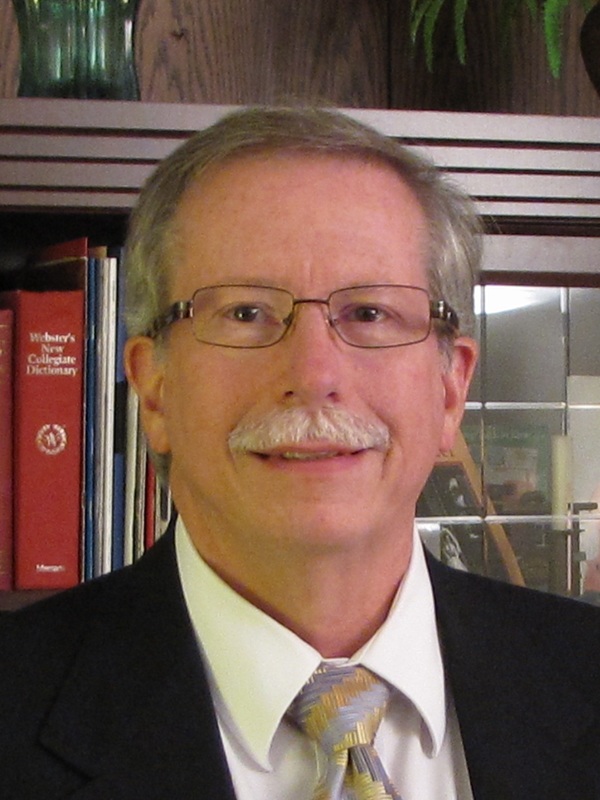Robert C. Byrd Legacy Project Oral Histories
A core component of the Byrd Legacy Project is our ongoing commitment to collecting oral histories from current and former members of the U.S. Senate and House of Representatives, former congressional staff members, friends, family, and constituents of the late Senator Robert C. Byrd. In addition to the audio, transcripts, and supplemental materials that we have received from our oral history project, we have also acquired interviews conducted with Senator Byrd himself and several volumes of oral histories conducted by the U.S. Senate Historical Office.
Listed below are the oral history interviews that the Byrd Center has digitized as part of The Byrd Legacy Project. This collection will expand as the Byrd Center conducts more interviews with current and former members of the House and Senate, former staff members, friends, family, and constituents of the late Senator Byrd. The oral histories conducted by the Byrd Center begin with a brief biographical note about the interviewee.
Listed below are the oral history interviews that the Byrd Center has digitized as part of The Byrd Legacy Project. This collection will expand as the Byrd Center conducts more interviews with current and former members of the House and Senate, former staff members, friends, family, and constituents of the late Senator Byrd. The oral histories conducted by the Byrd Center begin with a brief biographical note about the interviewee.
Carte GoodwinInterview Conducted on November 8, 2012
Biography
Carte Goodwin is a partner in the Charleston, WV law firm Goodwin and Goodwin. Following Senator Robert C. Byrd’s passing in 2010, Goodwin was selected by Governor Joe Manchin III to fill the vacant seat on an interim basis until a special election could be held to determine who would serve the remainder of the late senator’s term. Senator Goodwin served in this capacity from July 16, 2010 to November 15, 2010, stepping aside for Manchin who won the special election and stepped down as West Virginia’s governor. Prior to his brief Senate tenure, Goodwin acted as Governor Manchin’s General Counsel from 2005 – 2009. A graduate of Marrietta College (OH) and Emory University Law School (GA), Goodwin was chairman of the West Virginia School Building Authority and chair of the West Virginia Independent Commission on Judicial Reform. He was also appointed to the U.S. – China Economic and Security Review Commission. Senator Goodwin begins the interview by discussing the process by which he was asked to fill Senator Byrd’s vacated seat and by sharing some personal experiences from his brief tenure in office. Goodwin, who briefly worked as an intern in Senator Byrd’s office, reverently characterizes him as a “lion,” a “force of nature,” and “what the founders intended when they created the body [Senate].” In detailing the overt sense of responsibility he felt while trying to maintain Senator Byrd’s high standards the former Senator also explains how he felt while stepping onto the Senate floor and taking the oath of office from Vice President Joe Biden and while casting an important vote to extend unemployment benefits to those in need of aid. Goodwin also discusses the high regard that many Senators still hold for Senator Byrd, and he note the frequency with which other senators invoked Byrd’s name when attempting give their own arguments weight. In discussing the Senate, Goodwin contrasts popular perceptions of the body and some of his former colleagues with the outpouring of aid and advice he received while serving in Washington D.C. |
Tom HarkinInterview Conducted on September 17, 2018
BIOGRAPHY
Thomas R. “Tom” Harkin was elected to the U.S. Congress from Iowa’s Fifth Congressional District in 1974. In 1984, after serving ten years in the U.S. House of Representatives, Harkin won election to the United States Senate, defeating the incumbent, Republican Roger Jepsen. Harkin was reelected to the Senate in 1990, 1996, 2002, and 2008. He is the first Iowa Democrat to win a consecutive second term in the U.S. Senate and to date is the longest serving elected Democrat in Congress in Iowa history. During his first term, Harkin was tapped by Senator Ted Kennedy to craft legislation protecting the rights of Americans with physical and mental disabilities. The ensuing legislation, the Americans with Disabilities Act (ADA) was passed by the Senate in September 1989 and signed into law by President George H.W. Bush on July 26, 1990. In 2008, Harkin introduced with Senator Orrin Hatch (R-UT) the ADA Amendments Bill, which ensured ongoing protections for all Americans with disabilities. Harkin served on the U.S. Senate Appropriations Committee with Senator Byrd and on the Senate Health, Education, Labor, and Pensions (HELP) Committee, to which he was named chairman in 2009. In this interview, Senator Harkin discusses his twenty-five-year relationship with Senator Byrd, which began with Harkin’s election to the U.S. Senate in 1984. Harkin describes Byrd’s interest in their shared roots as sons of coal miners, Byrd’s response to Harkin’s appointment to the Senate Appropriations Committee as a freshman senator, and how Byrd’s studious and serious nature compared with their contemporaries in the Senate. Harkin also reflects on his own career and how the Senate changed as an institution during the late twentieth and early twenty-first centuries. Harkin details his leadership of the Americans with Disabilities Act and highlights the importance that gaining wide bipartisan support played in securing its passage into law. |
Ken HechlerInterview Conducted on December 7, 2012
Biography
Dr. Ken Hechler can look back upon an extraordinarily long and fascinating political career. While his parents were Republicans, Hechler became a life-long Democrat back in his college years, when he experienced the Great Depression under Hoover and the beginnings of economic recovery under Roosevelt. Hechler earned a PhD in American history and government in 1940 from Columbia University. He went on to teach at numerous institutions, including West Virginia State and Marshall. Drafted into the US Army in 1942, he served in Europe, interrogating prominent captured Nazis at the end of the war. He led President Truman’s speech-writing staff from 1949-1953. From 1959-1977, he represented West Virginia in the US House of Representatives and from 1985-2001, he served as West Virginia’s secretary of state. He has also been an advocate of environmental and social justice causes, marching with Dr. Martin Luther King, Jr. in Selma, Alabama (the only Congressman to do so), advocating for mine safety, and campaigning against mountaintop removal. In this interview, conducted on December 7, 2012 by Alan Sturm in Dr. Hechler’s residence in Charleston, West Virginia, Hechler describes his numerous encounters with Senator Byrd. Although he and Byrd were both Democrats, they frequently found themselves on opposite sides of many issues, in particular those relating to coal mining’s impacts on health and the environment. Nevertheless, Hechler maintained the highest respect for the senator. |
Carl LevinInterview Conducted on April 30, 2013
Biography
Senator Carl Levin (D-MI), of Detroit, is a graduate of Swarthmore College and Harvard Law School. He served as assistant attorney general and general counsel of Michigan’s Civil Rights Commission from 1964 to 1967. He was a member of the Detroit City Council from 1970 to 1973. First elected to the U. S. Senate in 1978, he has served five additional terms since then, and recently announced his decision to retire at the end of his term in 2014. He is Chairman of the Senate Armed Services Committee and the Permanent Subcommittee on Investigations of the Homeland Security and Governmental Affairs Committee. He entered the U.S. Senate when Senator Robert C. Byrd was Majority Leader. As Senator Levin states in this interview, Senator Byrd was an important mentor to him and other freshman senators. The interview was conducted in Senator Levin’s office in the Russell Senate Office Building, Washington, DC. |
George MitchellInterview Conducted on May 22, 2018
Biography
George J. Mitchell served as Democratic senator from Maine from 1980 until 1995. While in the Senate, he was a member of the Senate Finance, Veterans Affairs, and Environmental and Public Works Committees. As a young senator, Mitchell helped Democrats win back the majority in 1986, served on the Senate committee that investigated the Iran-Contra Scandal in 1987, and was instrumental in the passage of the Clean Air Act Amendments and the Americans with Disabilities Act in 1990. In 1989, Senator Mitchell was elected to succeed Senator Robert C. Byrd as the Senate Majority Leader, a post he held until his retirement from the Senate in 1995. After leaving the Senate, Mitchell served as United States Special Envoy to Northern Ireland under President Bill Clinton, wherein he chaired the all-party peace negotiations and helped secure the Belfast Peace Agreement, also known as the “Good Friday Agreement.” For these efforts, Senator Mitchell was awarded the Presidential Medal of Freedom (1999) and the Liberty Medal (1998). In 2007, he co-founded the Bipartisan Policy Center with former Senate Majority Leaders Tom Daschle (D-SD), Howard Baker (R-TN), and Bob Dole (R-KS). In this interview, Senator Mitchell discusses his professional relationship with Senator Byrd, his rise to Senate Majority Leader, and the challenges specific to the majority leader position. Mitchell considers the key points in his ascent within the Democratic Party in the Senate, from his appointment in 1980 to replace the retiring Edmund Muskie (D-ME) and his surprise appointment to chair the Democratic Senate Campaign Committee in 1984 by Senator Byrd to his work on the Senate’s Iran-Contra investigating committee and his election to majority leader in 1989. Throughout, Mitchell highlights the respect and admiration members of the Senate held for Senator Byrd, particularly regarding his knowledge of Senate rules and his longstanding dedication to the institution. Additionally, Mitchell describes the position of majority leader as having two primary, and sometimes conflicting, responsibilities, leader of the party he represents and leading the Senate as an institution, and he explains how the leadership styles of previous majority leaders, including Lyndon Baines Johnson (D-TX), Mike Mansfield (D-MT), Howard Baker (D-TN), and Robert C. Byrd informed his approach to the post. Mitchell also explains how increasing personal partisanship among senators and additional external factors have reshaped the majority leader position in recent years. |
Harley O. Staggers, Jr.Interview Conducted on October 3, 2012
Biography
Harley O. Staggers, Jr. served in the United States House of Representatives from West Virginia’s second congressional district from 1983 to 1993. Though politics was in his blood--his father, Harley Staggers, Sr., represented West Virginia in Congress for sixteen terms—he did not start out wanting to be a politician, planning to become a professional athlete. Instead, he attended Harvard University, then the West Virginia School of Law, where he received his JD in 1977. In this interview, conducted by Alan Sturm in Staggers’s office in Martinsburg, West Virginia, Congressman Staggers recounts his interactions with Senator Byrd, from his earliest memories of Senator Byrd visiting his father to Senator Byrd dancing to bluegrass music at Staggers’s first Washington fundraiser to learning the hard way not to speculate about Senator Byrd’s future plans. After West Virginia lost a congressional seat following the 1990 census, Congressman Staggers ran again for Congress, this time unsuccessfully. He then returned to his law practice of Staggers & Staggers, where he remains a partner. He lives in Keyser, West Virginia. Since the Byrd Center archives holds the congressional papers of Harley Staggers, Jr. and those of his father, Harley Staggers, Sr., the second half of the interview explores some of the son’s observations about his father’s career. |
Bob WiseInterview Conducted on May 17, 2013
Biography
Robert Ellsworth (“Bob”) Wise, Jr., a lawyer in Charleston, WV, served in the West Virginia Senate from 1980 to 1982 before his election to the US House of Representatives, where he served ten years, from 1983 to 1993 from the Third Congressional District. After redistricting, he was elected to serve from the Second Congressional District from 1993 to 2001. In 2000, he was elected governor of West Virginia, serving from January 15, 2001 to January 17, 2005. Since leaving office, he has been president of the Alliance for Excellent Education in Washington, DC, a non-profit organization focusing on national education policy. Governor Wise begins the interview with some reflections on his current work with the Alliance for Excellent Education and the importance of a vigorous national education policy before moving on to his relationship with Senator Byrd from his perspective as a state legislator, a member of the US House of Representatives, and as governor. Senator Byrd, according to Wise, was not only a master of Senate rules and procedures, but was equally well-versed in House rules. While the Senator did not try to impose his will on the House, he certainly could suggest to members of the West Virginia delegation how they might move bills on the House side. Governor Wise saw Senator Byrd as a champion of education, not only from the standpoint of his own lifetime of learning, but for the educational infrastructure he helped create in West Virginia. As Wise put it, “A lot of people, rightly so, point to all he’s done for infrastructure, physical infrastructure in the state of West Virginia, but we should never forget what he did for education, both in his personal life and the model that he made: the Byrd Scholarship, the institutes that were created around the state, the research facilities at WVU and other places. I often heard him say, ‘This isn’t something I’m just giving to you. What do you make of this? You’ve got to make something of it. This is an opportunity, but you have to take advantage of it.’” |
Governor Gaston CapertonInterview Conducted on June 20, 2013
Biography
From 1989-1997, William Gaston Caperton III served as the 31st governor of West Virginia. His initial forays into West Virginia politics came while working as an executive at McDonough-Caperton-Shepherd, the insurance company his father helped found during the 1930s. Caperton worked on several campaigns for Senators Robert C. Byrd and Jay Rockefeller during the 1970s and 1980s before defeating Arch A. Moore Jr. for the governorship. During his two terms in office, the governor worked closely with the state legislature on education reform and community and economic development, served on the National Governor’s Association executive committee, and chaired the Democratic Governors’ Association in 1996. Following his departure from office, Caperton taught at the John F. Kennedy Institute of Politics at Harvard University and at Columbia University. From 1999-2012, he was the president of the College Board, the organization that administers the SAT exams. Governor Caperton begins by discussing how he came to know Senator Byrd while volunteering at political functions in West Virginia. The governor explains how Senator Byrd rose from a political unknown to a nationally known and respected political figure with a political constituency that included Democrats and Republicans. He describes the senator as a “fantastic campaigner,” a “brilliant” and “tireless” worker, and a “suburb politician,” who frequently spent holidays calling friends and constituents offering well wishes and warm regards. The governor also recalls the seriousness with which Senator Byrd took his responsibilities as a public servant, noting that he was a “traditionalist” who understood and respected his duties as a U.S. Senator as well as those of the presidents and congressman that he worked with on a daily basis. In addition, Caperton sheds light on the ways in which he and the senator worked together during his term as governor to improve and expand West Virginia’s highway network. Touching on the senator’s personal life, Caperton charts the growth of his relationship with Senator Byrd from the early 1970s, characterizing him as a “straightforward,” “honest,” and “respectful” person, a “private man” who valued family, and a “good friend.” He comments on the senator’s strong religious faith and his deep regret at having involved himself with the Ku Klux Klan prior to entering politics. Caperton concludes by commenting on Senator Byrd’s legacy, situating him in the pantheon of “great” American senators and as the “greatest” of West Virginia’s senators. |
Judge Robert C. ChambersInterview Conducted on June 20, 2013
Biography
The Honorable Robert C. “Chuck” Chambers is the Chief Federal Judge for the Southern District of West Virginia. He was confirmed in October, 1997 after being nominated by President Clinton. Prior to his appointment to the bench, Chambers served in the West Virginia House of Delegates from 1978-1986. From 1986-1996 he acted as the Speaker of that body. Chambers also briefly co-chaired the West Virginia Democratic Party and practiced law in Charleston, WV following his departure from the state legislature. Judge Chambers begins by discussing one of his earliest political experiences, handing out voting literature at the polls as a young boy, and following Senator Byrd’s career. Focusing primarily on his professional relationship with the senator, Judge Chambers explains how Senator Byrd worked with him to improve West Virginia’s economy and infrastructure during the 1980s and 90s through a variety of projects. He highlights Senator’s Byrd’s unprecedented willingness to address a joint assembly of the state delegates on several occasions to detail important national issues impacting West Virginia. In the process, Judge Chambers insightfully describes Byrd’s 1989 decision to leave his leadership post in the Senate to become the chair of Appropriations Committee as driven by a desire to best aid in reviving West Virginia’s flagging economy. The judge then explains the process by which Senator Byrd and Senator Jay Rockefeller recommended him to President Clinton for the federal judgeship. Throughout, Judge Chambers emphasizes Senator Byrd’s preparedness, professionalism, and respect for the “separation of powers” between branches of the federal government and between the federal and state governments. He explains how these qualities enabled Senator Byrd to maintain strong working relationships with governors, representatives, and senators from both parties. The judge also speculates that those qualities would have helped make Senator Byrd “brilliant” Supreme Court justice. In speaking to Senator Byrd’s legacy, Chambers labels him a “statesman” of the highest order who put country and state ahead of all else. |
Judge Joseph R. GoodwinInterview Conducted on November 9, 2012
Biography
Alan Sturm conducted this interview with Judge Joseph R. Goodwin in his chambers in the Robert C. Byrd Federal Courthouse in Charleston, West Virginia on November 9, 2012. The interview addresses Judge Goodwin’s early political career, then moves to a discussion about his relationship with Senator Byrd and observations regarding the senator’s leadership style and personal motivations. The interview concludes with several of Judge Goodwin’s favorite stories about Senator Byrd, and a reflection on what his death means for the state of West Virginia. Joseph Goodwin was born in Ripley, West Virginia in 1942. He studied theater at West Virginia University, then entered the army after graduating in 1965. After serving, he returned to WVU to study law, earning his JD in 1970. He opened his own law firm together with his brother, and worked for Goodwin & Goodwin for twenty-five years. In 1995, on Senator Byrd’s recommendation, President Clinton nominated Joseph Goodwin to serve as judge with the United States District Court in the Southern District of West Virginia. The Senate confirmed the nomination that same year. In 2007, Judge Goodwin became Chief Judge of the United States District Court for the Southern District of West Virginia. |
Daniel JonesInterview Conducted on June 19, 2013
Biography
Daniel (Danny) Jones is the incumbent mayor of Charleston, WV. Currently serving his third term, Jones, a Republican, was first elected in 2003 and then reelected in 2007 and 2011. His prior political experience includes four years as sheriff of Konawha County and a two year term in the West Virginia House of Delegates. Outside the political realm, Jones spent several years as a restaurateur and also hosted a radio talk show. He is a veteran of the Vietnam War, having served in the U.S. Marine Corps. Jones begins the interview by explaining how he got to know Senator Byrd while working with him to successfully prevent the Base Closure and Realignment Commission (BRAC) from closing or shrinking West Virginia’s National Guard and Reserve bases. Jones remembers Senator Byrd as a “wise” and respected public figure dedicated to serving all of West Virginia’s citizens, a fact that made him popular among the state’s Republican and Democratic voters. He recounts Senator Byrd’s role in gaining federal funds for the construction of state-spanning highways and, more specifically, for several Charleston projects, including the city’s federal courthouse, the University of Charleston’s Center for Pharmacy Education, and the cover for the Haddad Riverfront Park, the latter of which was one of the senator’s last earmarks for the state. Branching beyond the West Virginia state borders, Jones also expounds on Senator Byrd’s political evolution during the 1970s, when he moved into a leadership position within the Democratic Party and onto the national stage. He situates the senator among contemporaries such as Senators Richard Russell, James Eastland, and Edward Kennedy. Explaining that Dwight Eisenhower was Senator Byrd’s “favorite Republican president,” Jones details Byrd’s thoughts on and feelings for other recent U.S. presidents, including Richard Nixon and Bill Clinton. Jones concludes the interview with a brief commentary on Senator Byrd’s legacy in West Virginia and the nation. |
Major General Allen TackettInterview Conducted on March 21, 2013
Biography
Major General Allen Tackett has had a remarkably diverse career, as the following interview makes clear. Held in the West Virginia National Guard headquarters in Charleston, West Virginia, the interview traces Tackett’s rise through the ranks, touching also upon his involvement in boxing and coal mining. Tackett makes it clear that his career is closely entwined with the subject of this oral history series, Senator Byrd. Tackett devotes special attention to Senator Byrd’s unique qualities that allowed him to rise from poverty to become, in Tackett’s view at least, “the most powerful person in the world.” |
Fred VanKirkInterview Conducted on July 31, 2013
Biography
Fred VanKirk served for more than 41 years in West Virginia’s transportation sector. After earning a degree in engineering from West Virginia University in 1962, he worked in the Highway Department’s planning and engineering fields until being named the state highway engineer in the early 1980s. In 1989, Governor Gaston Caperton named him West Virginia commissioner of highways, and in 1995, VanKirk took on the added role of cabinet secretary of transportation. He later served in this dual capacity under Governor Bob Wise from 2001-2005. In his role as West Virginia’s lead highway official, VanKirk worked closely with Senator Byrd on the planning, development, and funding of West Virginia’s transportation network. Much of this oral history focuses on VanKirk’s professional relationship with Senator Byrd. Van Kirk recalls traveling to Washington D.C. to be “interviewed” by Senator Byrd shortly after becoming highways commissioner, and he details the senator’s excitement at having the opportunity to dramatically improve West Virginia’s highway system through his position as chairman of the Senate Committee on Appropriations. He explains how Governors Caperton and Wise each facilitated and encouraged a direct line of communication between Senator Byrd and himself, and recalls project meetings with the senator in the appropriations committee chairman’s office . Portraying the senator as always well-informed on the issues at hand, VanKirk notes that Byrd did not “dictate” his desires for specific projects and was readily open to recommendations regarding the most needed, feasible, and beneficial projects to West Virginia. Moving beyond appropriations, VanKirk shares some favorite stories garnered from his meetings and travels with the senator. He also comments on Senator Byrd’s relationships with several contemporary West Virginia political figures, including fellow Senators Jennings Randolph and Jay Rockefeller, and Governors Gaston Caperton, Bob Wise, Joe Manchin, and Arch Moore. |
Governor Bob WiseInterview Conducted on May 17, 2013
Biography
Robert Ellsworth (“Bob”) Wise, Jr., a lawyer in Charleston, WV, served in the West Virginia Senate from 1980 to 1982 before his election to the US House of Representatives, where he served ten years, from 1983 to 1993 from the Third Congressional District. After redistricting, he was elected to serve from the Second Congressional District from 1993 to 2001. In 2000, he was elected governor of West Virginia, serving from January 15, 2001 to January 17, 2005. Since leaving office, he has been president of the Alliance for Excellent Education in Washington, DC, a non-profit organization focusing on national education policy. Governor Wise begins the interview with some reflections on his current work with the Alliance for Excellent Education and the importance of a vigorous national education policy before moving on to his relationship with Senator Byrd from his perspective as a state legislator, a member of the US House of Representatives, and as governor. Senator Byrd, according to Wise, was not only a master of Senate rules and procedures, but was equally well-versed in House rules. While the Senator did not try to impose his will on the House, he certainly could suggest to members of the West Virginia delegation how they might move bills on the House side. Governor Wise saw Senator Byrd as a champion of education, not only from the standpoint of his own lifetime of learning, but for the educational infrastructure he helped create in West Virginia. As Wise put it, “A lot of people, rightly so, point to all he’s done for infrastructure, physical infrastructure in the state of West Virginia, but we should never forget what he did for education, both in his personal life and the model that he made: the Byrd Scholarship, the institutes that were created around the state, the research facilities at WVU and other places. I often heard him say, ‘This isn’t something I’m just giving to you. What do you make of this? You’ve got to make something of it. This is an opportunity, but you have to take advantage of it.’” |
Mike FultonInterview Conducted on August 1, 2014
Biography
A native of Parkersburg, WV and graduate of West Virginia University, Mike Fulton is a public affairs and advocacy expert at the Washington D.C. office of the Asher Agency. He has been named a “Top Lobbyist” by The Hill four times, and he teaches Public Affairs in West Virginia University’s Integrated Marketing and Communications Program. Fulton began his career in Washington D.C. working on the staffs of West Virginia Congressmen Robert H. Mollohan and Alan Mollohan from May, 1979 to February, 1988, first as a projects assistant and later as appropriations counsel. He is a longtime member and past president of the National Capital Area chapter of the West Virginia University Alumni Association and the West Virginia Society of Washington D.C., for which he has served on the board of directors. In this oral history, Fulton discusses his years working as a congressional staffer and some of his many interactions with Senator Byrd. He positions Senator Byrd as the leader of the West Virginia congressional delegation and a master of the legislative process. Fulton sheds light on the ways in which West Virginia’s congressmen often worked in concert to acquire much-needed federal appropriations funds for their home state through their powerful committee positions. He remembers Senator Byrd’s staff as among the most professional and well-prepared in congress and discusses the key roles that staffers play in the day-to-day operations of a congressional office. Fulton also highlights Senator Byrd’s longstanding support of West Virginia organizations, noting his willingness to appear and speak at a numerous functions throughout his career, including a 1994 tribute in his honor that was sponsored by the West Virginia Society of Washington D.C. |
Jim HugginsInterviews Conducted on October 24, 2011, November 3, 2011, and January 19, 2012
Biography
In this series of interviews, conducted by Dr. Ray Smock over several weeks in 2011 and 2012, Jim Huggins gives an insider’s view of how Senator Byrd’s office worked. Born in Parkersburg, West Virginia in 1950, Huggins graduated from West Virginia University in 1973 with degrees in political science and business law. He began working for Senator Byrd in January 1973, and held a number of positions within the senator’s office, including assistant to the majority whip, office manager, state director, and professional staff member of the Senate Appropriations Committee. In 1974, Huggins developed Senator Byrd’s mobile office. Between 1985 and 1992, he ran Senator Byrd's high-tech project office, helping transform West Virginia’s economy from heavy industry to high technology. Huggins proposed and helped design West Virginia projects worth over $500 million dollars that were approved and funded by Senator Byrd. Beginning in the 1970s, Huggins also became increasingly active in overseas business relationships, particularly with China, and he traveled extensively there. Huggins left Senator Byrd's staff in 1992 after 20 years of service to join fellow West Virginia native and former President Kennedy staffer Mel Cottone in establishing the Washington government and political consulting firm of The Cottone and Huggins Group. Huggins remained close to Senator Byrd after he left Byrd’s staff, and the senator occasionally called upon him to help raise money, seek his advice, or drive him to a weekend engagement in West Virginia. In 2004, Huggins suffered a bad fall, which ended his career as an active globetrotting consultant. Between 2004 and 2008, he was confined to bed fighting MRSA. He last spoke with Senator Byrd during a visit to Byrd’s home in April of 2010. Huggins is married to Connie Bandy Huggins of Cape Coral, Florida. He has two children, Jennifer and James III, and a step-son, Jeremy Hawk. He currently lives with his family in the Tampa Bay area. A note regarding the transcript: After the interview was transcribed, the interviewee reviewed the transcript and made edits and additions. Material enclosed in brackets was added during the editing process. Bracketed text in regular typeface consists of editorial clarifications. Bracketed text in italics was added by the interviewee and is generally not in the archived recording. |
Dr. Marcia K. BrandInterview Conducted on July 29, 2016
BIOGRAPHY
Dr. Marcia K. Brand is the chairman of Shepherd University’s Board of Governors, the executive director of the National Interprofessional Initiative on Oral Health, and a senior advisor to the DentaQuest Foundation. Between 1989 and 1991 Dr. Brand worked on Senator Byrd’s staff in Washington D.C. as a legislative assistant on issues relating to health, education, agriculture, and veteran’s affairs. Dr. Brand subsequently ran the Federal Office of Rural Health Policy and served as the deputy administrator of the federal Health Resources and Services Administration, an agency within the US Department of Health and Human Services. A native of Martinsburg, WV, Dr. Brand was a faculty member at Old Dominion University in Norfolk, VA and Thomas Jefferson University in Philadelphia, PA prior to joining Senator Byrd’s staff. In this interview, Dr. Brand primarily discusses her work as a legislative assistant on Senator Byrd’s staff, which coincided with the senator’s first two years as Chairman of the U.S. Senate Appropriations Committee. Brand details some of the specific duties she was tasked with, including meeting with constituents, writing speeches, analyzing legislation, and keeping the senator abreast of his colleagues’ positions on pending pieces of legislation. In the process, she highlights the steep curve new congressional staff face in simultaneously mastering their individual assignments and keeping track of the larger happenings in Congress. Brand also discusses some of the many factors Senator Byrd considered when deciding whether to support a pending piece of legislation. The interview concludes with a brief discussion of the high standard of performance to which Senator Byrd held his staff. |
Louis FisherInterview Conducted on August 8, 2012
Biography
Dr. Louis Fisher worked at the Congressional Reference Service and the Law Library of the Library of Congress for forty years. The author of twenty-nine books and hundreds of articles, he remains an active contributor to the literature on the separation of powers even in retirement. He earned his PhD in political science from the New School for Social Research in 1967. In this interview, held at the Kensington, MD, home of interviewer Richard A. Baker on August 8, 2012, Fisher recounts his career with the Library of Congress, emphasizing his relationship and interactions with Senator Byrd. Fisher was especially impressed by Senator Byrd’s extraordinary powers of memory and his energetic defense of the Senate’s powers against attempts by the Executive branch to weaken the institution. Fisher recounts several instances where Senator Byrd quoted lengthy passages of scholarly works from memory. In particular, though, Fisher mourns the passing of statesmen of Byrd’s caliber, who are unlikely to appear again in an age of poor political education and vitriolic talk-shows masquerading as news programs. According to Fisher, in a post-Citizens United political climate, where politicians must spend so much of their time raising money for their own campaigns, it has become all too easy to delegate decision-making to the Executive branch and its proxies. Similarly, the age of the Internet has combined with heightened partisanship to displace the independent scholar ready and willing to render judgments regarding some of the major legal issues of our times, especially concerning the powers of the president to wage war. |
Ray SmockInterview Conducted on September 5, 2012
Biography
Dr. Ray Smock has served as the Director of the Robert C. Byrd Center for Legislative Studies since its dedication in 2002. He was Historian for the U.S. House of Representatives from 1983-1995 and has contributed to and consulted on numerous academic and public history projects, including the 4-volume Encyclopedia of the United States Congress (1995) and Landmark Documents on the U. S. Congress (1999). He was historical consultant to the National Constitution Center in Philadelphia. An alumnus of Roosevelt University in Chicago and the University of Maryland, College Park (Ph.D.), he co-edited the 14-volume documentary series The Booker T. Washington Papers and wrote a biography Booker T. Washington: Black Leadership in the Age of Jim Crow (2009). In this wide-ranging discussion, Smock retraces the path by which he became a public historian, explains how he came to know Senator Byrd while working on the Constitution’s bicentennial celebration, and details the development and construction of the Byrd Center. Smock places Senator Byrd among the most notable and accomplished figures ever to serve in Congress and touches on the Senator’s expert knowledge of the Constitution and the Senate’s rules and protocols. He remembers a man dedicated to maintaining Congress’ position as a co-equal branch of the federal government, detailing Senator Byrd’s preference for forging pragmatic, bipartisan agreements and his passion for mentoring new Senators. Smock also comments on Senator Byrd’s West Virginia background, core values, work ethic, and his evolving positions on issues ranging from flag burning, war, and racial equality. |
James NoblesInterview Conducted on February 21, 2012
Biography
Much has already been written about Senator Robert C. Byrd, and far more information about the senator can be found in the archival collection housed at the Robert C. Byrd Center for Legislative Studies. Nearly all of that material, however, addresses the professional rather than the personal side of the man. One of the great advantages of oral history is its ability to access the personal, to put a more human face on historical figures. Few people have been better positioned to reveal Senator Byrd’s personal side than James Nobles, one of the senator’s closest friends for twenty-eight years. Born February 13, 1933, in Wetumpka, Alabama, Nobles moved to the Washington, DC area in 1960. He and his new wife Joan settled in McLean, Virginia, where he worked for the Safeway grocery store corporation for twenty years. He first became acquainted with Senator Byrd through Nobles’s wife, who taught several of the Byrds’ grand-children. The friendship between Nobles and Byrd really began as a result of tragedy, however. After Byrd’s grandson Michael died in a car crash shortly before he was to graduate from high school, Nobles offered to share home movies he had of Michael as a child playing with his own sons. Nobles also began helping Senator Byrd and his wife, taking the senator grocery shopping, bringing the Byrds home-grown produce, and helping with yard work. Nobles and the senator also held many long conversations while sitting on the porch of the senator’s McLean home. While Nobles expresses great affection for Senator Byrd in this interview, the esteem clearly was mutual. Senator Byrd’s admiration for Mr. Nobles led the senator to devote a speech on the Senate floor to his friend and neighbor. It can be found in the Congressional Record of July 28, 2005. A note regarding the transcript: After the interview was transcribed, the interviewee reviewed the transcript and made edits and additions. Material enclosed in brackets was added during the editing process. Bracketed text in regular typeface consists of editorial clarifications. Bracketed text in italics was added by the interviewee and is generally not in the archived recording. |
Virginia TabbInterview Conducted on October 10, 2012
Biography
Virginia Tabb is a longtime resident of Jefferson County, WV and friend of Senator Byrd. Her late-husband, Lyle, was a member of the Democratic Executive Committee and chairman of the Jefferson County Democratic Party for several years. In this oral history, Mrs. Tabb discusses her family’s move to rural West Virginia from the Pittsburgh area as a youth, growing up on a working farm during the 1930s and 40s, and her family’s forty-year friendship with the Senator and Erma Byrd. She situates the genesis of this friendship in 1964, when Senator Byrd helped settle an ongoing dispute between the Tabb’s, the Department of Agriculture (DA), and the Food and Drug Administration (FDA). Mrs. Tabb remembers fondly the Byrd’s many visits to the family farm at Avon Bend, where she prepared cooked poke, a regional West Virginia dish, for the Senator. She describes Senator Byrd as someone who fit in as “just one of the gang” and a “down-to earth” person, despite his lofty position in national politics. Mrs. Tabb also briefly shares her perspective on Senator Byrd’s political career. She claims that Senator Byrd’s longstanding popularity within West Virginia and his numerous political achievements were rooted in the fact that he was “someone that could be trusted” and the dedication with which he approached his work. Mrs. Tabb notes that even while holding leadership positions in the Senate and being swamped with work on issues of national importance, Senator Byrd always made time to honor his commitments to the people of West Virginia. Virginia Tabb passed on May 1, 2017. |
Robert "Bobby" TaylorBiography
Robert “Bobby” Taylor is a fourth generation West Virginia fiddler with more than forty years performing experience. He trained under famed fiddlers Clark Kessinger and Mike Humphreys and first gained recognition for his playing in 1977, when he was named West Virginia state fiddle champion. In 2003, the Friends of Old-Time Music and Dance awarded Taylor the Footbridge Award for his contribution to old-time music. He has served as a judge at numerous prestigious fiddling competitions, including the Grand Masters Fiddle Championship in Nashville, TN, and coordinated several others, including the West Virginia Vandalia Gathering contest, the Appalachian Open Contest, and the Appalachian String Band Music Festival Contest. Taylor has played with numerous acts and entities, most recently with the old-time band, Kanawha Tradition, at a variety of venues, most notably the Kennedy Center in Washington D.C. In this oral history, Taylor focuses primarily on one of the less publicized aspects of Senator Byrd’s life, his fiddle playing. A close personal friend, Taylor performed in support of the senator on numerous occasions as a part of Chestnut Ridge, a group he describes informally “as Senator Byrd’s band.” He details Senator Byrd’s life-long passion for playing the fiddle, the musicians who most influenced the senator’s playing, and the seriousness with which he approached the instrument. Taylor characterizes Senator Byrd as a “very good fiddler” whose playing had “a lot of soul” and a unique “haunting tonal effect.” He also explains how playing the fiddle at rallies and stump speeches helped the then future senator gain notoriety and develop a following during his early political career. Branching away from music, Taylor discusses his friendship with Senator Byrd. He expresses his affinity for the senator through the retelling of numerous personal stories and anecdotes, including one in which the senator called his father to make sure that he safely returned home from a performance. In doing so, Taylor presents Senator Byrd as “an honest” and “genuine” humanitarian and as a “maverick public servant” who “transcended” parties and politics while serving the state of West Virginia. |

